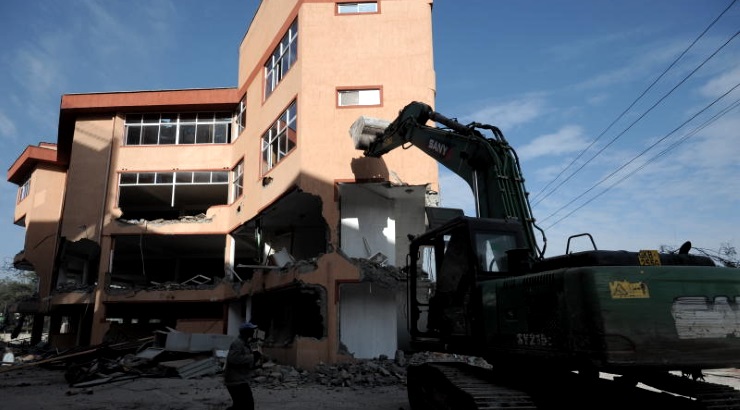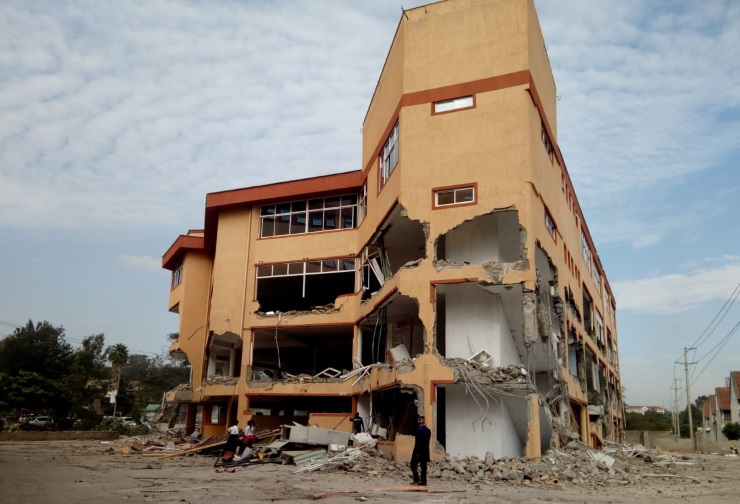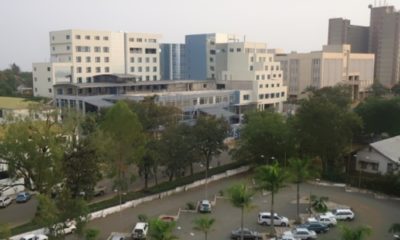Industry News
Demolition of Nairobi malls sparks rare barrage of criticism
The exercise is likely to prove very expensive for both the government and the economy.

As the government intensifies demolition of buildings erected on riparian land, construction professionals are increasingly voicing their concerns over the economic and legal impact of the exercise that has attracted praise and condemnation in equal measure from Kenyans.
The experts argue that while the idea behind demolitions is a noble one, the task is being done in a manner that is likely to prove very expensive for both the government and the economy.
The Architectural Association of Kenya (AAK), which says it fully supports the spirit behind the demolitions, is concerned that the flattening of buildings is being done heartlessly without minding innocent victims who stand to lose their livelihoods.
“The application of the law must be consistent and non-selective. The demolitions should be mindful of the innocent, like second and third generation buyers and tenants,” AAK President Emma Miloya told the association’s annual convention in Mombasa two weeks ago.
AAK is also concerned that Kenyans will now find it hard to trust the legitimacy of documents issued by the government considering that many victims claim to have obtained approvals from Nema, Water Resources Authority, and the Nairobi City County.
“How will ordinary citizens trust the authenticity of documents issued by the government? Why did these agencies wait for the structures to be built only to demolish them? The government should be held to account for these omissions,” Ms Miloya added.

AAK’s sentiments clearly mirror those of the Institution of Surveyors of Kenya (ISK), which has urged the government to rethink the exercise so as to forestall possible legal suits.
“It is our advice that the multi-agency team thinks through this exercise to forestall possible legal battles over compensation as a result of the property demolitions,” ISK chairman Abraham Samoei said a statement.
Serious impact
While ISK supports the demolition of illegal structures in Nairobi and other parts of Kenya, the professional body warns the exercise is likely to have serious impact on the economy since some of the buildings set to be flattened were built on loans from development partners.
“The authorities involved in demolitions should be more vigilant in the exercise. In addition, a proper audit should be carried out,” says ISK.
“It is not clear anymore which permits are valid and there is no process to validate them either,” – KPDA chairman Mucai Kunyiha.
Kenya Property developers Association (KPDA) says the demolition drive has a negative impact on real estate as investors might hesitate to develop their land due to fear of future losses.
“A lot of fear is set to get into the real estate industry as it is not clear anymore which permits are valid and there is no process to validate them either,” says KPDA chairman Mucai Kunyiha.
Besides, there are concerns that demolitions are being carried out poorly and are themselves a danger to the environment and the workers.
“You saw what happened at the demolition of Ukay Mall in Westlands (Nairobi). It almost took a tragic turn after one of the walls being brought down fell on the excavator,” Mr Kunyiha says.
READ: Taj Mall set for demolition after five-year wait
Conflicting legislation
To avoid such unfortunate happenings in future, AAK has urged the government to address conflicting legislation on riparian land such as the Survey Act, Agriculture Act, and Water Act 2016 – which have fuelled confusion on the matter.
“In some cases, buildings were built before there was a clear definition of restrictions on development on riparian land in law nor were these agencies in existence.”
“We strongly advise that the definition of the term riparian land be clarified and harmonized across the board,” Ms Miloya said.
The government says it will demolish more than 4,000 illegal buildings in Nairobi alone, with demolitions expected to be extended to Kiambu, Mombasa, Kisumu, Kisii, and Kajiado.












